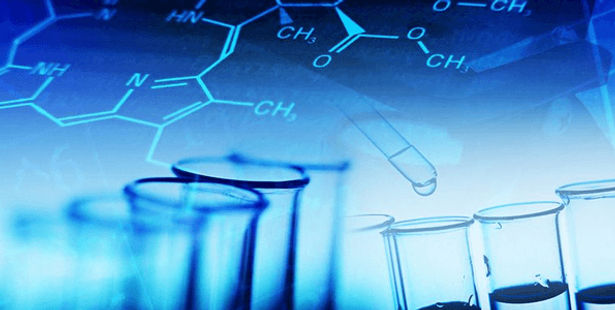
IIT JEE Chemistry is very important and it is the scoring subject. Students preparing for the exams have to cover many topics. The most important topics would be Physical Chemistry, Inorganic Chemistry, and Organic Chemistry, and all topics should be properly focussed and studied. Each of the topics is very interesting and has to be adequately understood.
Syllabus of IIT JEE Chemistry.
The main units of Chemistry are Physical Chemistry, Organic chemistry, and Inorganic Chemistry.
The chapter in Physical Chemistry is Some Basic Concepts in chemistry, States of Matter, Atomic Structure, Chemical Bonding, and Molecular Structure, Chemical ThermoDynamics, Solutions, Equilibrium, Redox Reactions, and Electro Chemistry, Chemical Kinetics and Surface Chemistry.
Inorganic Chemistry includes the chapter Classification of Elements and the periodicity of properties, General Principles and Processes of Isolation of Metals, Hydrogen, S-Block Elements, p,d and f Block Elements, Coordination Compounds, and Environmental Chemistry.
Organic Chemistry consists of Purification and Characterization of Organic compounds, Some Basic Principle of Organic Chemistry, Hydrocarbons, Organic Compounds containing Halogens, Organic compounds containing Oxygen and Nitrogen, Polymers and Biochemicals, Chemistry in Everyday Life, Principle related to practical Chemistry.
Notes play an important role in the preparation. Some of the reasons are you will review all the topics in a short time.
If your notes are prepared in a well-organized way then it saves you the hustle of referring all the books for the topics. You will have all the topics in one place.
Notes can give an accurate understanding of the topics thoroughly.
The notes will be self-made and it is your way to jot down the things so you can understand them whenever you are revising the chapter. Making it systematically totally depends on you.
You will get ready-made notes of each chapter online, but if you make your notes and a self-written one will be always beneficial.
Tips to make organized notes.
Sometimes you might not feel the importance to make notes or you might think that everything is in the textbook so why make? The reason is simple. When you make notes you also learn. You know the point and topics which are important. The notes will come in handy during the revision and at the time of the exam. You cannot just go on referring to books, at some point you just have to brush up. So it is important to take organized notes.
Give the headings and the subheadings for each topic so when you read you will be clear with the topic.
Sometimes you might come across some very big concepts which cannot be completely written down. Such times just add the references of the books appropriately from where you have read.
Try always to prepare notes in the bound books so it is safe, Loose sheets might get lost and your efforts and the hard work will be gone and hamper your studies.
Chemistry has vast topics so your notes might be of two or three books. You can number the books accordingly and also the index page should be properly filled with relevant topics and the page number.
Important chapters to focus on in JEE Mains Chemistry.
Organic Chemistry can fetch you more marks. This is not a difficult chapter but has vast topics so the students have to perceive the topics accurately.
The important chapters are Chemical Bonding, Periodic Table, carbonyl Compounds and their Derivatives, Redox Reactions and Mole Concepts, Solid States, Solutions and Gases Theory, Thermo Chemistry, and Second Law of Thermo Dynamics.
Tips for making revision notes
Notes with illustrations will be more effective. Try to use this technique. Use the diagrams and the arrows wherever is possible. The mind always remembers the pictures more than the written words or sentences. Don’t make it elaborate. Make it crisp and compact.
While studying a topic you may come across some topics which have to be read again and again. Such topics can be highlighted so you can immediately find them without wasting any time. You can also use different colours for different topics but don’t highlight all the topics and create confusion.
Some students mark the important topics and the terminologies in the textbook itself. This might save you time. But if you want to revise it’s like going through the whole book. When you write you will remember better and also helps you to write down the important topics in your way but the same won’t be possible in the textbooks.
When you write the reactions in the notebook you can use the same colour of pen that of the colour of the compound. This way you can remember very well the actual colour of the compounds. You might be asked to identify the compound based on the colour.
It is not just important to make notes while you study at the same time it is very important to make notes in your class too. Be attentive and don’t miss any topics and take down the important points in the class when your teacher explains. This will give you a better acquaintance of the topics.
Some chapters might contain idioms that might not be very easy to understand. Make a note of the same in your notebook and understand the meaning. You can always ask your teacher to help you.
Understanding the chemical reactions often may be confusing. To avoid confusion it is advisable to practice the reactions as many times as you can every day.
Whichever question you feel is complicated or any kind of difficulty practise the same every day.
Make a list of all the chemical reactions which you find difficult in your notebook. Revise every day. This will surely be effective. Learning can be fun and proper if it is well planned and organized.
These are some of the important tips to prepare the revision notes.
You can also click on JEE Main Chemistry Revision Notes for further details.






